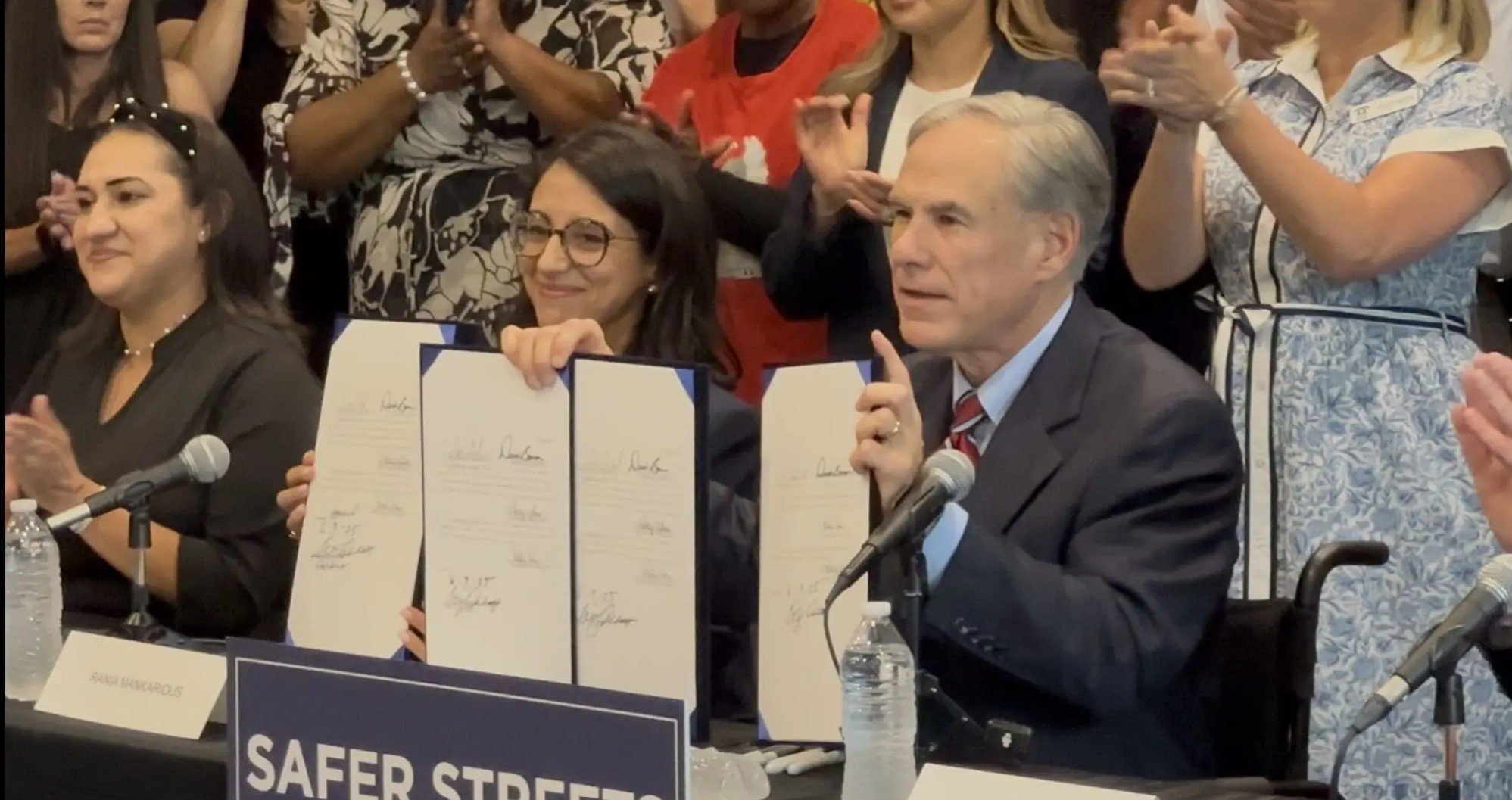Gov. Abbott Signs Historic Bail Reform Laws to Combat the Release of Violent Offenders

By Joseph Trimmer | Texas Scorecard | June 3, 2025
Just one day after the legislative session ended in Austin, Gov. Greg Abbott signed into law a package of bail reform measures.
Flanked by victims and law enforcement officials in Houston on Tuesday afternoon, he addressed a city where the state’s bail system has come under intense scrutiny after a series of high-profile cases in which violent offenders released on bond committed additional violent crimes.
“Hundreds of Texans have been murdered by violent criminals who had previously been arrested and released on easy bail,” Abbott told a packed room at Crime Stoppers of Houston.
The centerpiece of the reforms is Senate Bill 9 and Senate Joint Resolution 5, both passed during the 89th Legislative Session and hailed by supporters as historic for public safety.
SB 9 imposes strict new limits on personal bonds, requires magistrates to meet accountability standards, regulates charitable bail organizations, and empowers prosecutors with expanded authority to appeal judges’ decisions if they are deemed too lenient on bail.
Abbott highlighted the recent story of Austin Collette.
“While this man, who was a confessed killer, was waiting to be sentenced, Harris County District Judge Hilary Unger let this confessed killer out of the jail back onto the streets on bail. Three months after the judge let him out to roam the streets again, he killed again,” said Abbott.
According to Abbott, judges will be required to explain to the public in writing their reasoning when they release dangerous criminals onto the streets. Abbott also highlighted that Senate Bill 40 stops non-governmental organizations from using tax dollars to bail out dangerous criminals.
Complementing this, SJR 5 is a proposed constitutional amendment that would allow judges to deny bail in serious felony cases if prosecutors can show the defendant poses a threat to public safety. This resolution will go to Texas voters for approval in the November election.
Other proposals failed to reach the finish line this session. SJR 87 would have mandated bail denial for individuals accused of violent felonies who have prior convictions or are currently out on bail for similar offenses. SJR 1, meanwhile, targeted bail for certain illegal aliens accused of violent crimes.
Lt. Gov. Dan Patrick said that the intention was to revisit the failed measures, perhaps in a special session, but he did not say if one would be called by the governor.
Harris County has become symbolic of the state’s bail crisis, where judges, most notably Judge Unger of the 248th Criminal District Court, have been widely criticized for granting personal bonds to dangerous defendants. One high-profile example involves Dremone Francis, charged in the fatal shooting of Deputy Fernando Esqueda.
Despite the severity of the offense, Francis was granted a $1 million bond by Unger, sparking outrage among law enforcement and victim advocates.
His alleged accomplice, Ronald Palmer, was held on a $3 million bail.
Earlier this year, Houston Mayor John Whitmire said up to 900 people charged with murder were free on bond in the city.
Abbott addressed victims directly, “Your efforts led to a rewriting of The Constitution of the State of Texas so that criminals like those [who] harmed your families will never be on the loose again.
Joseph Trimmer
Joseph is a journalist for Texas Scorecard reporting from Houston. With a background in business, Joseph is passionate about covering issues impacting citizens.